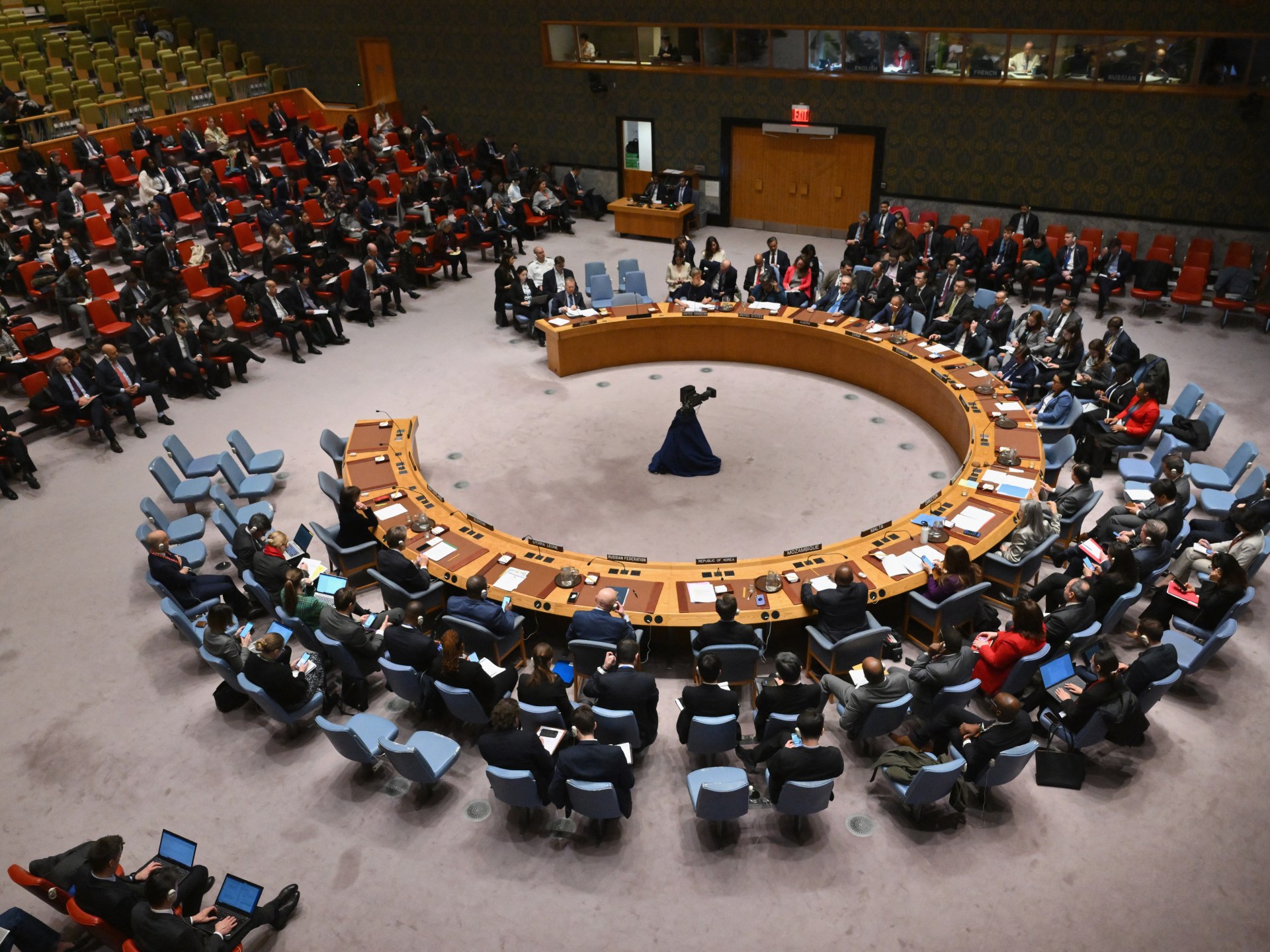14 members of the Security Council out of 15 voted in favor of the ceasefire resolution in Gaza (French)
Washington -
Yesterday, Monday, for the first time, the Security Council adopted a ceasefire resolution in the Gaza Strip. There have been contradictory estimates about whether or not the decision is mandatory for the parties associated with it.
The United States refrained from using its veto power for the first time since the start of the Israeli aggression on the Gaza Strip more than 5 months ago.
In a tweet on the
Indyk added, "The resolution is non-binding; it calls for a ceasefire during Ramadan and the release of detainees. The United States abstaining from voting is not a good development for Netanyahu."
When asked by New York University international law expert Robert Howes what he meant, Indyk explained that “the resolution is non-binding in the sense that there are no consequences for not complying with its demands.”
In turn, Hawes noted that although the resolution itself does not contain enforcement measures, it is “binding in the sense that non-compliance with it violates Article 25 of the United Nations Charter, and consequences arise under general international law relating to State responsibility, even if it is not provided for.” It is in the decision.”
The importance of Resolution No. 2728 and the United States’ refusal to obstruct its issuance, as it has done three times since the start of the Israeli aggression on the Gaza Strip, stems from its indirect political messages and the desire of the administration of US President Joe Biden to bring his dispute with Israeli Prime Minister Benjamin Netanyahu to the public.
Biden previously supported Senator Chuck Schumer's speech, which demanded the necessity of holding elections in Israel that "may change the nature of the right-wing government ruling in Tel Aviv at the present time."
Does the Security Council resolution have binding executive force?
No, very few UN resolutions are considered legally binding. International law experts do not agree on what is needed to make a resolution binding.
But there is general consensus that Chapter VII of the UN Charter should be mentioned, which gives the Security Council the right to take military and non-military measures to confront “the threat to international peace and security.” The resolution must also state that the council “decides” the course of action, rather than merely calling for it.
The resolution does not meet any of these conditions, but some legal scholars argue that by using the word “demands” the Council creates a legal obligation outside Chapter VII. But Israel has violated dozens of previous Security Council resolutions, including several resolutions “requiring” it to stop building settlements in the occupied West Bank.
What is the purpose of such decisions then?
Security Council resolutions are often a form of political signals that reflect the trends and preferences of global public opinion towards this issue.
For the five permanent members, who are clearly and sharply divided between a Western camp that includes the United States, France and Britain, and an Eastern camp that includes Russia and China, agreement on anything is rare, so if they agree to demand a ceasefire, it will be an exceptional diplomatic event.
The process of reaching a solution can also be a way to resolve differences between major powers. Security Council Resolution 2728 regarding Gaza gave a small political space that both the United States and Russia could coexist with, even with Washington abstaining from voting.
Historically, Washington has used UN resolutions as a means of sending signals to Israel. When Washington abstains from voting on rare occasions, including what happened yesterday, Monday, on a resolution that criticizes Israeli policy or supports Palestinian rights, it is usually a message to Tel Aviv that the administration is running out of patience with everything it does.
What then?
After the United States abstained from voting, which many commentators saw as a clear signal to translate Biden’s speech in favor of a ceasefire into political action, important political questions remain seeking answers in the coming days and weeks, including:
How will passing this resolution affect Washington’s position on an expected Israeli incursion into the city of Rafah, where more than a million displaced Palestinians have taken refuge since the start of the aggression?
Will the Biden administration continue to sell weapons to Israel, even if Tel Aviv continues to reject a ceasefire?
Will Biden continue to turn a blind eye to random Israeli killings in the Gaza Strip?
Will Biden continue to repeat the statement that the Israeli attacks are an implementation of Tel Aviv’s right to defend itself?
Source: Al Jazeera

